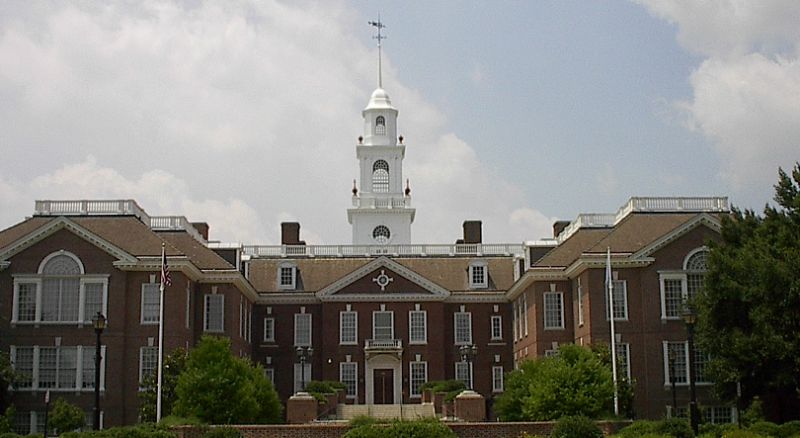On Tuesday the Delaware Association Of Chiefs Of Police sent a letter to members of the Delaware General Assembly laying out their concerns regarding a late-filed substitute bill after two years of “meaningful dialogue.”
Dear Members of the General Assembly:
Over the last two years, leadership from the Delaware Association of Chiefs of Police (DACP) have participated in hundreds of hours’ worth of discussions with policy makers related to law enforcement reform. During that time, the Chiefs of Police has offered meaningful dialogue and thoughtful suggestions on how to achieve the joint goal of greater transparency and accountability. As such, the leadership of the DACP participated in the Law Enforcement Accountability Task Force (LEATF) by sharing our professional experience, as well as offering meaningful and thoughtful suggestions to achieve the joint goals of the LEATF. As a result of the task force, there was a series of pieces of legislation that were introduced and passed into law. For each one of these items the Chiefs of Police offered our public support and commitment to implementing these new laws. These include statewide body cameras, recordings of custodial interviews, statewide use of force standard, publicly reporting data that includes use of reports and decertification of law enforcement officers.
While changes to the Law Enforcement Bill of Rights (LEOBOR) was not a recommendation that came out of the LEATF working group, SB149 was drafted and unfortunately, the DACP was not engaged in a meaningful way by the sponsor prior to introduction of the bill. Yet, we remained committed in being good partners to achieve our joint goals (creating additional transparency and accountability). As such, we joined Senator Lockman in her working group around LEOBOR for the fall and winter sessions. During that time, we offered our professional experience to help educate the working group on the process and procedures that are currently in place. We offered meaningful suggestions on how to improve the process. In late February, Senator Lockman hosted a meeting with leadership from the DACP where we discussed substitute language conceptually. We provided feedback relative to the items discussed. On March 8, 2022, a draft substitute was shared with us. On March 10, 2022, we were asked to meet to discuss the draft language. During that meeting, we highlighted both procedural and pragmatic concerns, as well as our commitment to get this right to achieve our common goals. A substitute bill was filed late yesterday without any notice and without any feedback from the sponsors relative to our previous discussion.
Throughout the 20 months of being engaged as meaningful partners and extending invitations to have policymakers come and see first-hand what the internal affairs process looks like, we have had only four members of the House of Representatives take the time to learn first-hand and ask questions. We are not opposed to being more transparent. We are not opposed to accountability. However, we are disheartened that the members of the General Assembly, namely those who are leading the charge, have not taken the time to truly understand the process in which they are trying to alter through this legislation. Being a good-faith partner goes both ways. We share a goal of serving the communities in which we represent.
SS1 for SB 149 presents a number of concerns to the law enforcement community. The largest of them is the make-up of the civilian review board, which excludes law enforcement from being a voting member. Every single professional board in the State of Delaware includes practitioners from the industry. To exclude members of the law enforcement community flies in the face of working together to garner trust, transparency and accountability. There are also significant concerns with the lack of clarity around the civilian review boards and exactly how they will work from a sensible and realistic perspective. There have been many questions raised around this piece and there still remains a lack of clarity. We have been committed to this process because we too, believe that transparency and accountability are important. As written, however, we are opposed to SS1 for SB 149.
Yours truly in safety,
Patrick A. Ogden
President
Delaware Association of Chiefs of Police
FSU reached out to Georgetown State Senator Brian Pettyjohn, who was a member of the Law Enforcement Accountability Task Force, for comment regarding the association’s letter to lawmakers.
“ I have read SS1 for SB 149 many times over the past 24 hours. Each time I look at it, I find more concerns. Today’s letter from the Delaware Association of Chiefs of Police underscores the concerns I’ve had with major changes to the Law Enforcement Officers’ Bill of Rights (LEOBOR).”, said Georgetown State Senator Brian Pettyjohn.
As a member of the now-concluded Law Enforcement Accountability Task Force, I had the distinct opportunity to engage with stakeholders from law enforcement and concerned citizens from various groups throughout the state. Some very valid recommendations were put forward and approved by the task force, and some initial proposals were rejected. This is the nature of civil discourse and compromise.
“I will let the letter from the Chiefs Association speak for itself. As leaders in the departments whose men and women will be drastically affected by this legislation, their words carry much more weight than mine. It’s my hope that the General Assembly show its true support for Delaware Law Enforcement by not passing this bill, but by bringing about meaningful change that will attract qualified, dedicated men and women to the profession, and provide them the protections vital to this unique and dangerous line of work.”, added Pettyjohn

